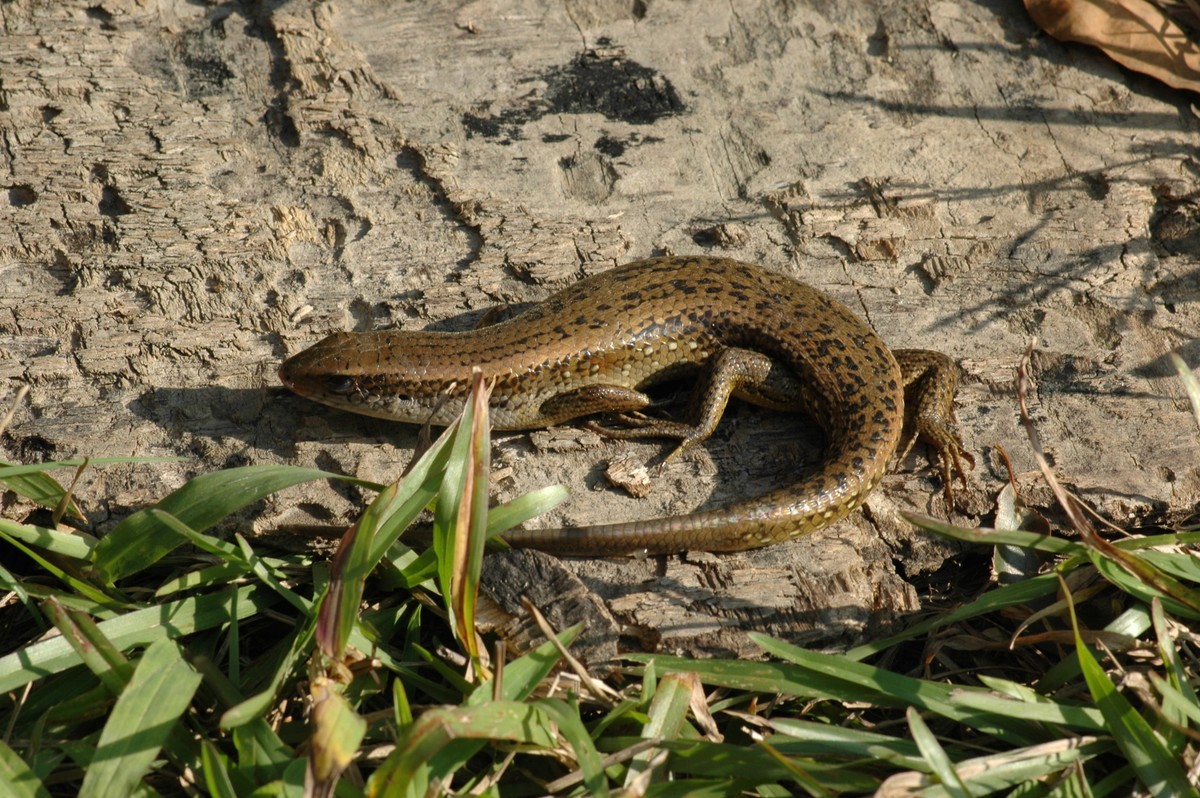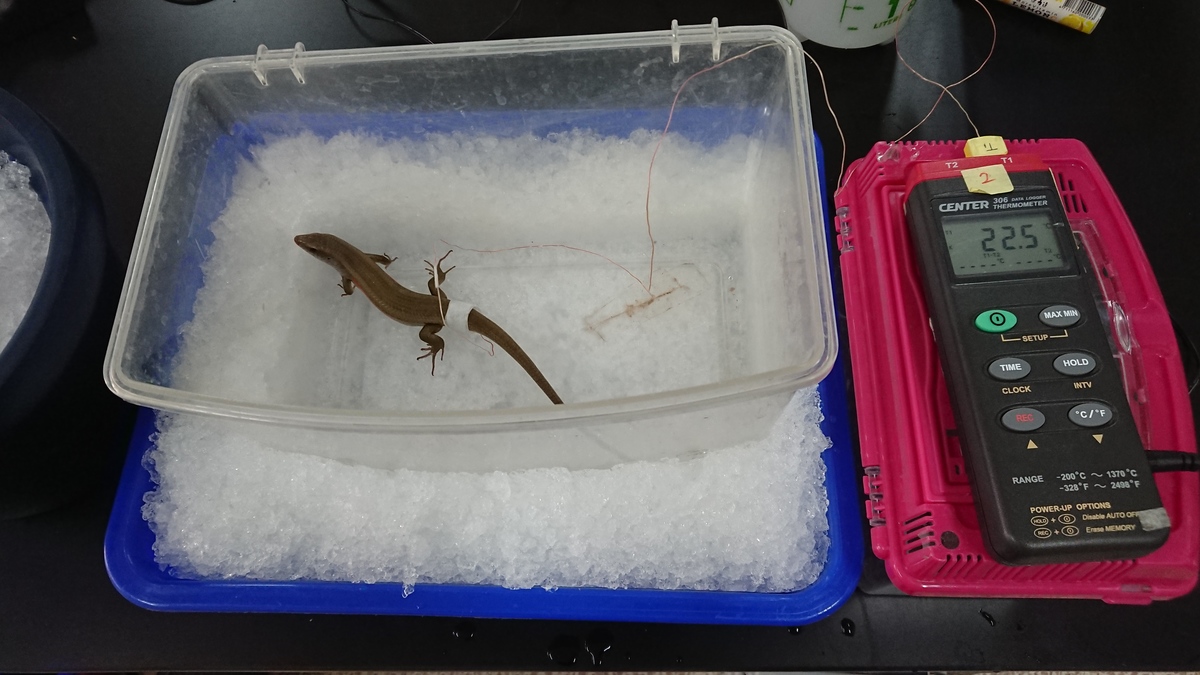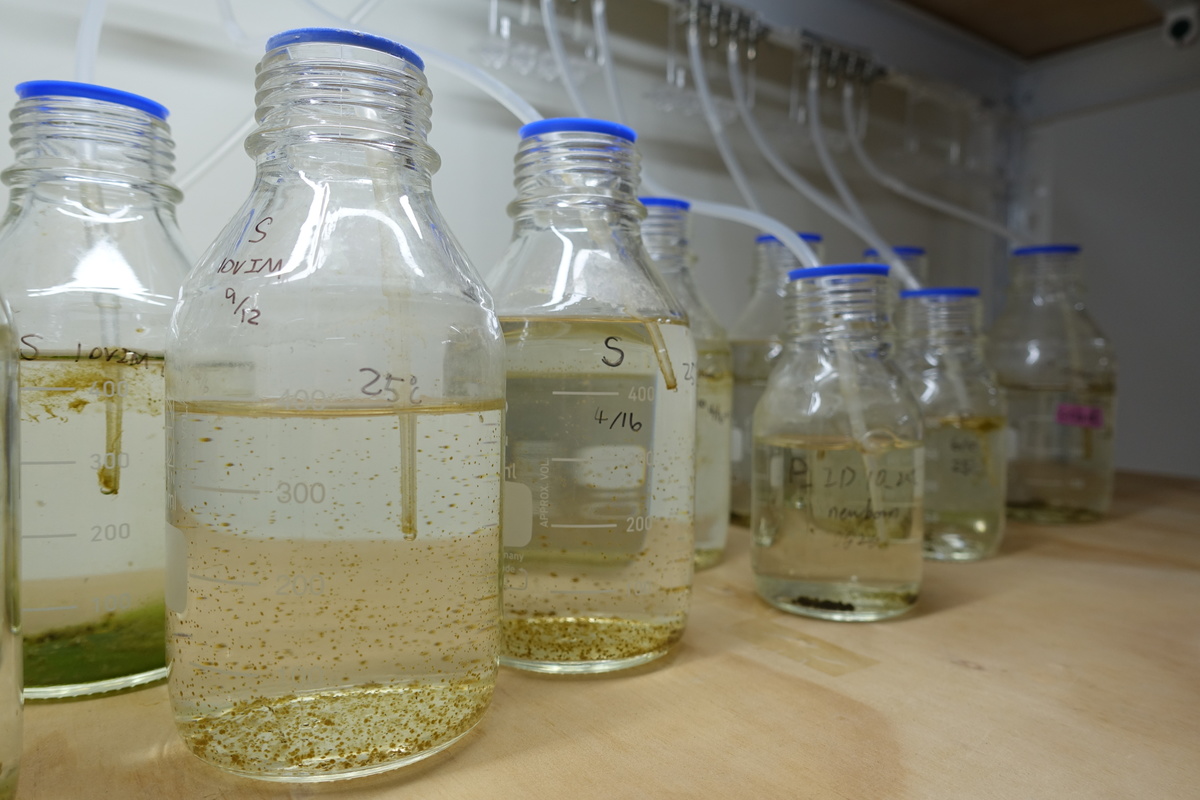Climate warming to severely destabilize Taiwan’s ecosystems composition and threaten biodiversity, says Assistant Professor Romain Richard




2021-07-26
According to the data by Taiwan Climate Change Projection Information and Adaptation Knowledge Platform (TCCIP), average annual temperatures in Taiwan have been increasing in the past 100 years and are projected to further rise by over 3°C by the end of the century. Rising temperatures are not only a threat to humanity but also to biodiversity, as they may favor certain invasive species and threaten sensitive species, which is going to destabilize ecosystem composition. “For Taiwan, this might be even worse, as the ecology of islands is generally much more sensitive to disturbances than continental systems,” says Assistant Professor Romain Richard Department of Biological Sciences (DBS) at National Sun Yat-sen University.
Professor Richard, a specialist in theoretical ecology and population dynamics who studies species’ response to environmental drivers such as temperature and the way changes at the individual level impact population dynamics, warned that the threat to biodiversity caused by rising temperatures in Taiwan might be particularly severe. “Taiwan has much more vulnerable biodiversity as it is an island. Isolated from the mainland, islands usually have unique ecosystems with unique species and if a species is threatened, it has nowhere to go. In an increasingly hot environment, many vegetal and animal species are predicted to move to cooler regions – some may move to a more closed habitat, like a forest, some may move to higher elevations, or again move north, but in Taiwan, they cannot move too far. Many species may also be able to respond with evolutionary changes, which is good, although we don’t really know to what extent they can change and if they can do it fast enough to match climatic changes. A sure consequence of all this is that ecosystem composition will change: some species will decline or even go extinct, some will change habitats, and there might be new invasive species introduced,” he explained.
“Introduction of new species, intentional or not, is always a risk. Invasive species is one of the most important causes of global species extinction,” says Richard. In Taiwan, rising temperatures seem to favor the spread of an invasive species – the many-lined sun skink, or Eutropis multifasciata, according to a recent study by a research team including members of NSYSU DBS – Assistant Professor Romain Richard, Assistant Professor Shu-Ping Huang (黃淑萍) and master student Tai-Yu Chen (陳泰宇), and researcher Te-En Lin (林德恩) of Endemic Species Research Institute (ESRI).
The medium-sized viviparous lizard, originating from tropical regions of Asia, was first recorded in 1992 in Kaohsiung, and since then it has become a dominant species as it spread further inland, establishing populations in the lowlands of central and southern Taiwan and outer islands, and causing the populations of native species of lizards to decline. “The results of this study predict that climate warming will provide this species more time for activity in lowland regions, which will have negative consequences for other species through increased competition. However, mountain forests should keep acting as a cold barrier and limit its expansion to higher elevations, as long as we preserve them,” explained Richard.
Rising temperatures are a direct threat to both terrestrial and aquatic species. In Taiwan, rising water temperatures have been particularly deadly for coral ecosystems, emphasized Professor Richard. According to Central Weather Bureau, 2020 was Taiwan’s hottest year on record. This resulted in the worst coral bleaching event in Taiwan’s history due to high sea temperature: Taiwan Coral Bleaching Observation Network reported that at least 31% of the coral reefs in Taiwan’s waters have died.
In addition to its collaborative work on lizards, Professor Romain Richard is also leading a research program looking at the effects of temperature on Taiwanese species of Daphnia – small planktonic crustaceans that are key to the ecology of lakes and ponds. “We don’t research these species for their own sake only, but maybe more importantly, as a means to identify common mechanisms driving species’ responses to their thermal environment, in order to explain the effects of climate change on biodiversity in general,” says Professor Richard.
Read more:
“Landscape forest impacts the potential activity time of an invasive lizard and its possibilities for range expansion in Taiwan under climate warming”
https://doi.org/10.1016/j.jtherbio.2021.102948
Map of occurrences of E. multifasciata (red dots) in Taiwan based on road kill data collected by citizen scientists. Figure from the recent team’s publication (Chen et al., 2021):
https://ars.els-cdn.com/content/image/1-s2.0-S0306456521001157-gr1_lrg.jpg
According to the data by Taiwan Climate Change Projection Information and Adaptation Knowledge Platform (TCCIP), average annual temperatures in Taiwan have been increasing in the past 100 years and are projected to further rise by over 3°C by the end of the century. Rising temperatures are not only a threat to humanity but also to biodiversity, as they may favor certain invasive species and threaten sensitive species, which is going to destabilize ecosystem composition. “For Taiwan, this might be even worse, as the ecology of islands is generally much more sensitive to disturbances than continental systems,” says Assistant Professor Romain Richard Department of Biological Sciences (DBS) at National Sun Yat-sen University.
Professor Richard, a specialist in theoretical ecology and population dynamics who studies species’ response to environmental drivers such as temperature and the way changes at the individual level impact population dynamics, warned that the threat to biodiversity caused by rising temperatures in Taiwan might be particularly severe. “Taiwan has much more vulnerable biodiversity as it is an island. Isolated from the mainland, islands usually have unique ecosystems with unique species and if a species is threatened, it has nowhere to go. In an increasingly hot environment, many vegetal and animal species are predicted to move to cooler regions – some may move to a more closed habitat, like a forest, some may move to higher elevations, or again move north, but in Taiwan, they cannot move too far. Many species may also be able to respond with evolutionary changes, which is good, although we don’t really know to what extent they can change and if they can do it fast enough to match climatic changes. A sure consequence of all this is that ecosystem composition will change: some species will decline or even go extinct, some will change habitats, and there might be new invasive species introduced,” he explained.
“Introduction of new species, intentional or not, is always a risk. Invasive species is one of the most important causes of global species extinction,” says Richard. In Taiwan, rising temperatures seem to favor the spread of an invasive species – the many-lined sun skink, or Eutropis multifasciata, according to a recent study by a research team including members of NSYSU DBS – Assistant Professor Romain Richard, Assistant Professor Shu-Ping Huang (黃淑萍) and master student Tai-Yu Chen (陳泰宇), and researcher Te-En Lin (林德恩) of Endemic Species Research Institute (ESRI).
The medium-sized viviparous lizard, originating from tropical regions of Asia, was first recorded in 1992 in Kaohsiung, and since then it has become a dominant species as it spread further inland, establishing populations in the lowlands of central and southern Taiwan and outer islands, and causing the populations of native species of lizards to decline. “The results of this study predict that climate warming will provide this species more time for activity in lowland regions, which will have negative consequences for other species through increased competition. However, mountain forests should keep acting as a cold barrier and limit its expansion to higher elevations, as long as we preserve them,” explained Richard.
Rising temperatures are a direct threat to both terrestrial and aquatic species. In Taiwan, rising water temperatures have been particularly deadly for coral ecosystems, emphasized Professor Richard. According to Central Weather Bureau, 2020 was Taiwan’s hottest year on record. This resulted in the worst coral bleaching event in Taiwan’s history due to high sea temperature: Taiwan Coral Bleaching Observation Network reported that at least 31% of the coral reefs in Taiwan’s waters have died.
In addition to its collaborative work on lizards, Professor Romain Richard is also leading a research program looking at the effects of temperature on Taiwanese species of Daphnia – small planktonic crustaceans that are key to the ecology of lakes and ponds. “We don’t research these species for their own sake only, but maybe more importantly, as a means to identify common mechanisms driving species’ responses to their thermal environment, in order to explain the effects of climate change on biodiversity in general,” says Professor Richard.
Read more:
“Landscape forest impacts the potential activity time of an invasive lizard and its possibilities for range expansion in Taiwan under climate warming”
https://doi.org/10.1016/j.jtherbio.2021.102948
Map of occurrences of E. multifasciata (red dots) in Taiwan based on road kill data collected by citizen scientists. Figure from the recent team’s publication (Chen et al., 2021):
https://ars.els-cdn.com/content/image/1-s2.0-S0306456521001157-gr1_lrg.jpg
Click Num:
Share
